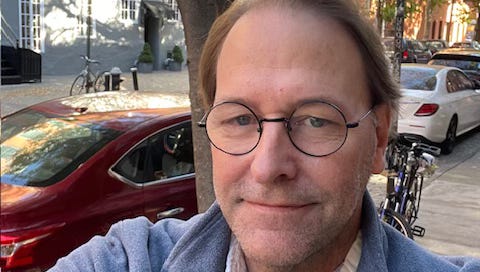How Michael Ruhlman Keeps Writing, Decade after Decade
Writing The French Laundry Cookbook led to co-authorship of 11 books with chefs, plus many other books
I first met writer Michael Ruhlman in 2010, en route to Ixtapa for a food writing workshop. We were on a small plane from Cancun. I wanted to introduce myself, but I could see that he was busy writing on his laptop, so I waited until we had landed. I admired his productivity and discipline, tak…



